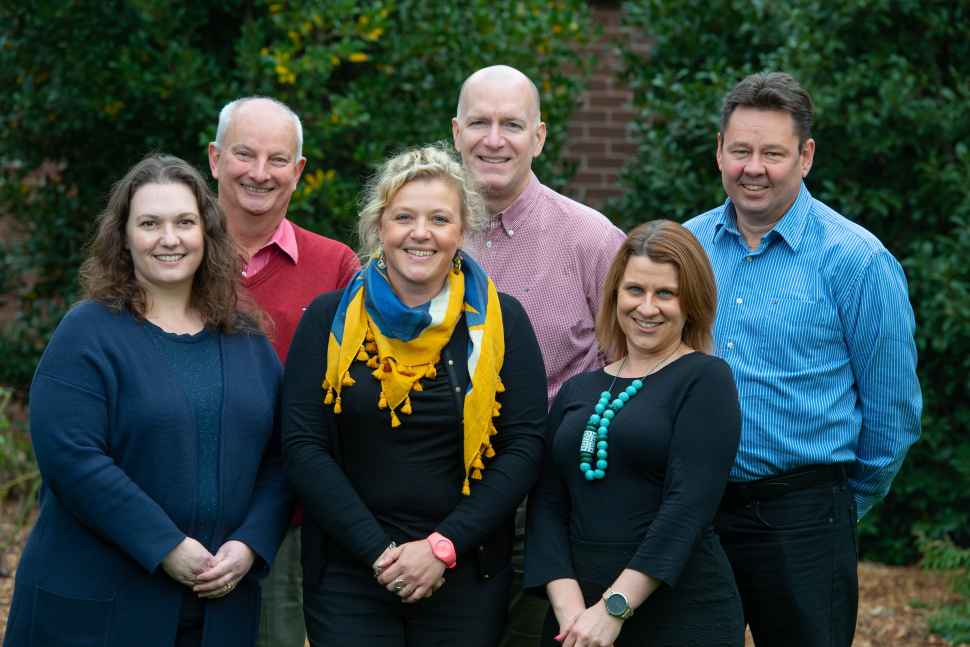This is a note to say we're testing.
Were testing
Biofilm Research and Innovation Consortium
Delivering innovative biofilm solutions
Better solutions to control biofilms
The Flinders Biofilm Research and Innovation Consortium provides innovative solutions and state of the art facilities to understand biofilm resistance to current treatments and removal strategies.
What is the Flinders Biofilm Research and Innovation Consortium?
The unique strength of the Flinders Biofilm Research and Innovation Consortium is the combination of multidisciplinary expertise to develop innovative solutions and provide better controls of problematic biofilms. Our knowledge and expertise is relevant to many industries such as desalination and membranes, medical implants, beverage and food, water and wastewater, renewable energy, biosecurity, maritime and mining. The consortium builds on the strong biofilm research being done at the Flinders Institute for NanoScale Science and Technology.
Biofilms grow on all surfaces and environments, from catheters to drinking water pipes and tankships. They are complex organisations of cells that grow on both living and inert surfaces and are both viscous and elastic in nature. They can be made up of a single species or comprise several species of different types of microorganisms. Biofilm attachment and development cannot be prevented completely thus they cost billions each year to those attempting to eradicate them. In some instances, biofilms also pose a threat as they can facilitate the attachment of organisms that cause infections or that present risks to Australia's marine biosecurity.
Biofilms are 3D structures, made of a combination of different microbial species embedded within a protective extracellular polymeric substances (EPS) matrix. Their matrix has proven a highly effective survival strategy and protection means against biocides, antifungal and antibacterial treatments.
We are working with industries to develop innovative solutions that meet their needs and alleviate their biofilm related problems.
Research with real-world impact
The Flinders biofilm researchers study environmental, industrial and medical biofilms. They have access to a suite of instruments that allow for advanced studies of biofilms in different environments and can assist you with challenges related to biofouling. We work closely with Flinders Microscopy and Microanalysis led by Sarah Harmer.
Our capabilities include in-situ monitoring, biochemical and microbiological characterisation, development of novel surfaces and innovating coating solutions.
Key research areas
- Proteomics: Proteomics is the comparative identification of entire sets of proteins expressed by different microorganisms and under various conditions. The microbial communities present in the biofilm matrix express different genes and gene products and their analysis helps understanding the physiology and molecular mechanisms behind biofilm formation.
- Metabolomics: Metabolomics relates to the identification of metabolites that are representative of the response of biofouling communities to their environment. The use of metabolomics in biofilm studies provides information on the interactions occurring within the biofilms, and on metabolites that can be used to optimise the development of coatings to better control biofilm formation.
- Rheology: Biofilms are elastic and viscous in nature. Viscoelasticity plays an important role in biofilm adhesion and survival, allowing the biofilm to change its composition and mechanical properties as a response to stress. We explore biofilm dynamics and mechanical responses to stress and shear.
- Surface characterisation: The properties of surfaces dictate what communities will attach and develop on them. We use a vast array of techniques to characterise surface properties before and during the development of biofilms.
- Biochemistry: Of the extracellular polymeric substances (EPS) matrix in which the biofouling communities are embedded is essential to grasp a better understanding of the environment in which these community develops and evolve.
- Antifouling coatings: We develop coating solutions that can be tailored to different industrial applications and needs. These coatings are tested at different scales to assess their efficacy.
- Nanotechnology: Advanced biofilm solutions include the use of nanoparticles for a better control of the development of microbial biofilms. These nanoparticles can be tailored to address specific needs for control.
- Biophysics: Biofilms develop in dynamic environments under various conditions of flow and shear. The hydrodynamic conditions under which a biofilm forms will dictate its topography and community composition.
- Microbiology: Biofilm settings offer a protection to the microorganisms living in it, allowing for example the persistence of biofilm-based infections in spite of antibiotic therapy. Microbiological studies conducted on the biofilms advance our knowledge of the microorganisms we want to control.
Projects that make a difference
- Preventing biological growth – a new generation anti-biofouling coatings.
- Mineral microbe interactions: Using nature to develop green minerals processing.
- Antimicrobial nanoparticle coatings for evaporative cooler pads.
- Assessing the biofouling role of microbes in a desalination system; from the intake pipe to the reverse osmosis membranes.
Biofilm science meetings
These meetings are a great opportunity to meet researchers who work with industry to investigate issues related to biofilm formation and provide innovative strategies to prevent, control and eradicate undesirable biofilms. Our biofilm science meetings are held twice a year for our industrial associate members and prospective members, usually in June and November.
Founding members
Email us for any enquiries
![]()
Sturt Rd, Bedford Park
South Australia 5042
South Australia | Northern Territory
Global | Online



